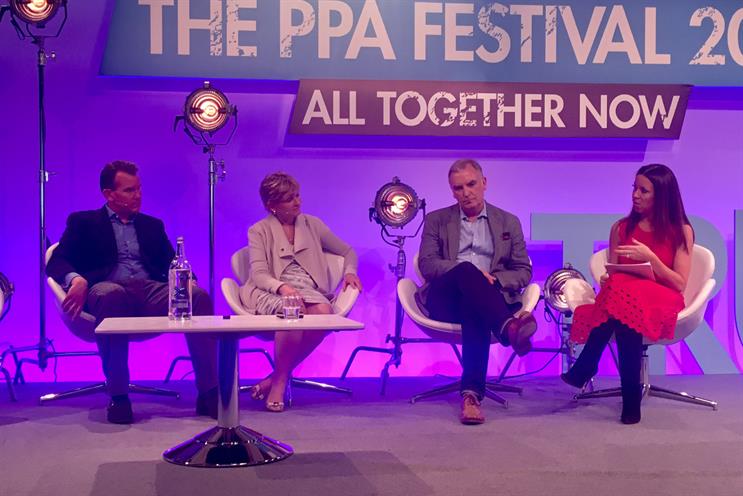
Speaking on a panel at the PPA Festival yesterday, Amanda Barnes, chief executive of the Faversham House Group, cited her company's location in Sussex as an impediment to hiring necessary top talent.
"We are increasingly growing our own as we can't find all the talent we need out in Sussex. So we bring talent in and work with them. We had one young guy who came in on a sales training programme which turned out not to be for him. But now, he's in our data team and being brilliant," Barnes said.
But location-aside, the demand for digital and data talent is so acute that it has nearly nothing to do with "how good an employer you are", Kevin Costello, chief executive of Haymarket Media Group said.
"There's a fundamental skill shortage which the creative industries have to work collectively to address," he said and pointed to Haymarket's apprenticeship programme. "We have had 50 apprentices in the business over the years and 75% have gained full-time employment and much of it in tech."
Haymarket has also been working on training and upskilling existing talent, Costello continued. "Analysing and adapting to editorial stats is a new skill we're asking of our journalists."
There is also a need to train talent not just for today but for the future, Jonathon Whiteley, chief executive of Incisive Media told panel moderator Kathleen Saxton, founder of The Lighthouse Company.
"The children today will do jobs that don't even exist at the moment. What's worth worrying about is ensuring they're capable of approaching a life of change," he said.
Today's young graduates are being "let down" by society and education, agreed Saxton. "You do need to train and help them."
Millennials get an unfairly hard rap, Costello concurred: "They get criticised for constantly seeking feedback – well I wish a lot of people had a lot more feedback 20 years ago. There’s nothing wrong with that and we need to get behind it."
At a more senior level, publishers are starting to find that the frantic desire to join Google or Facebook is finally on the wane.
"A lot of our senior people have left high-powered jobs in London for a different work-life-balance," Barnes said. "They enjoy the lifestyle more."
Whitely, too, has found it easier to retain senior talent as the years have progressed. "Those companies [Facebook and Google] look exciting. And they are. But the reality is, you're one of 35,000 people globally. They're the modern industrial firm and you're a cog. Eventually, you find the ability to influence, take control, and see the direct results of your work to be more appealing."




.jpg)
.jpeg)
